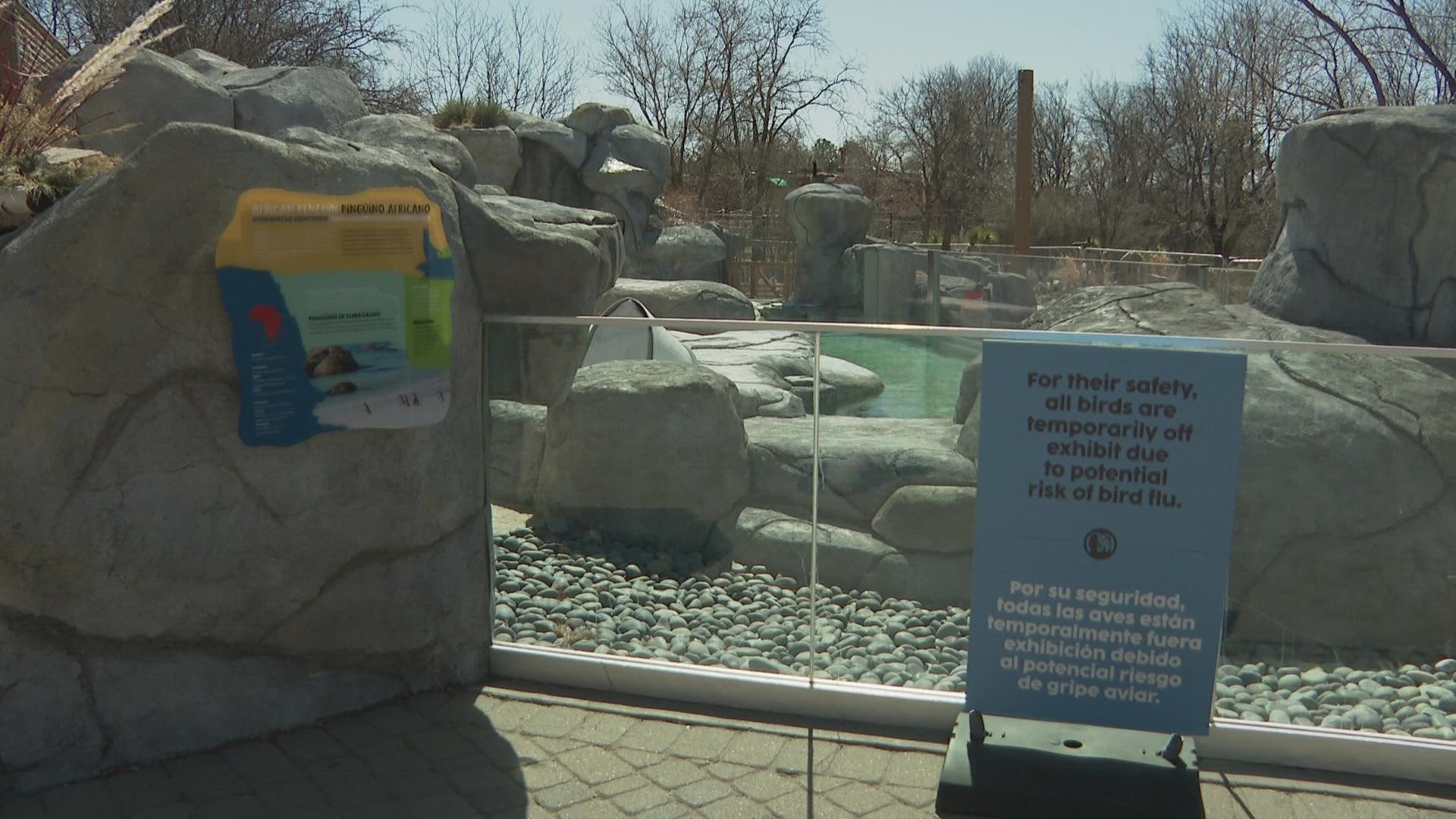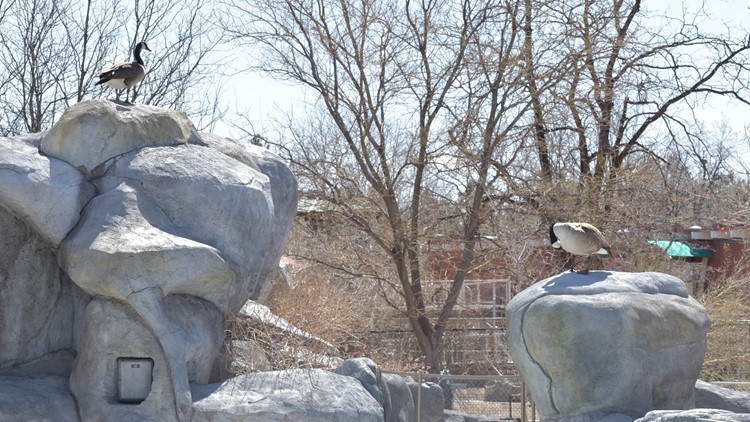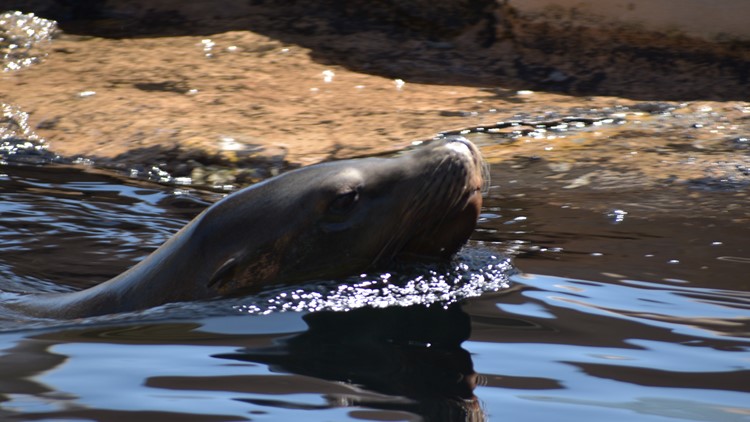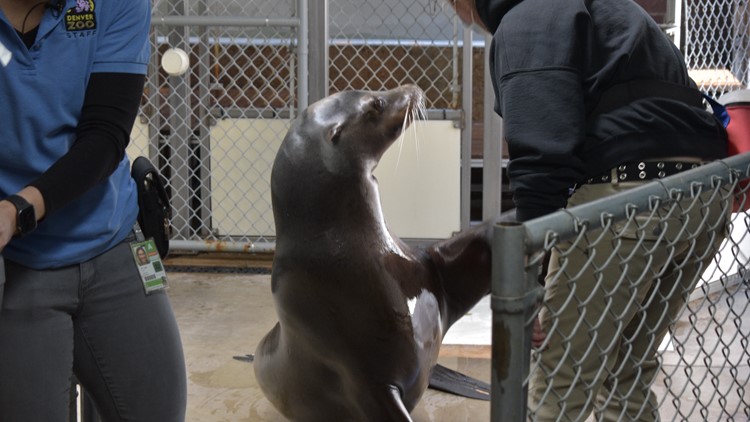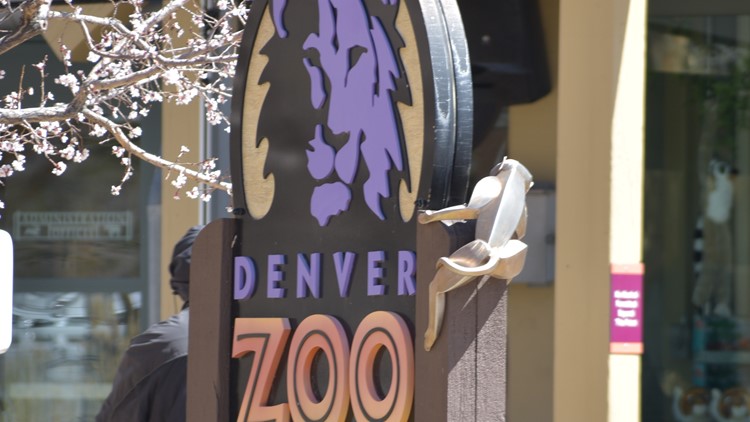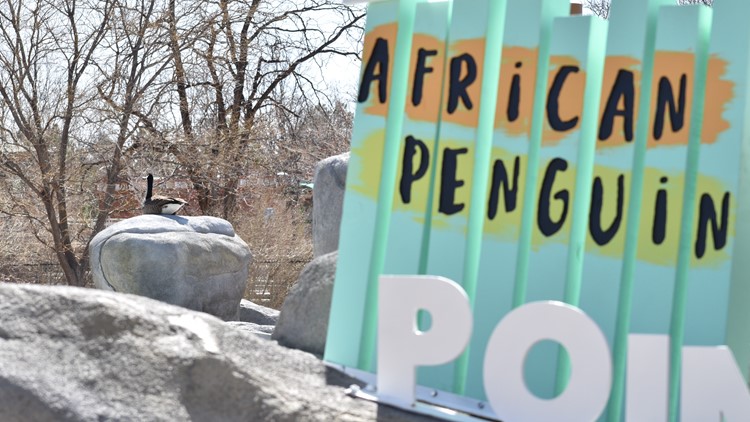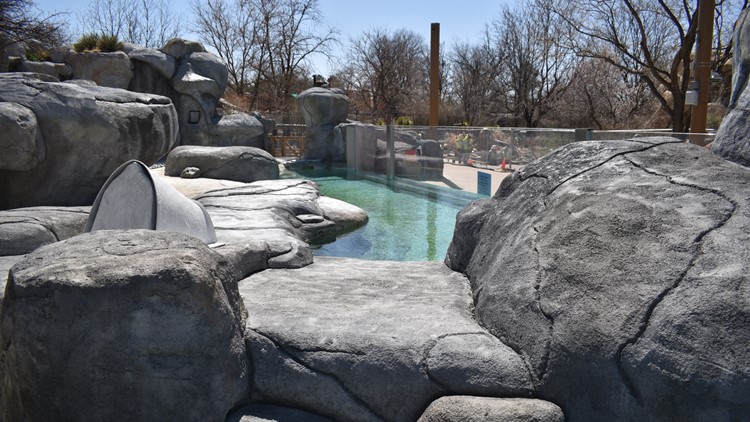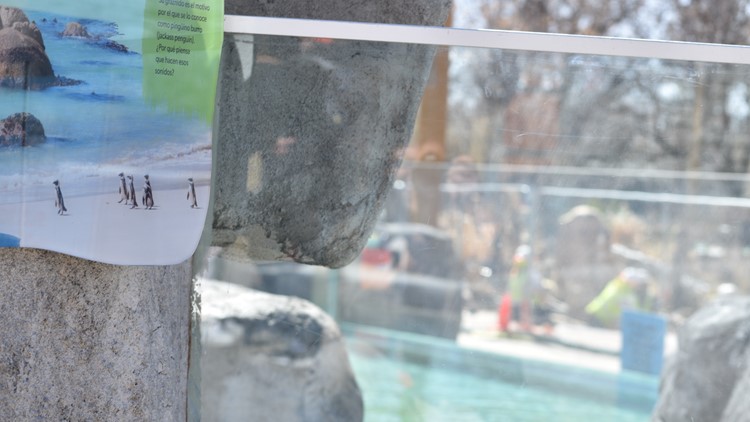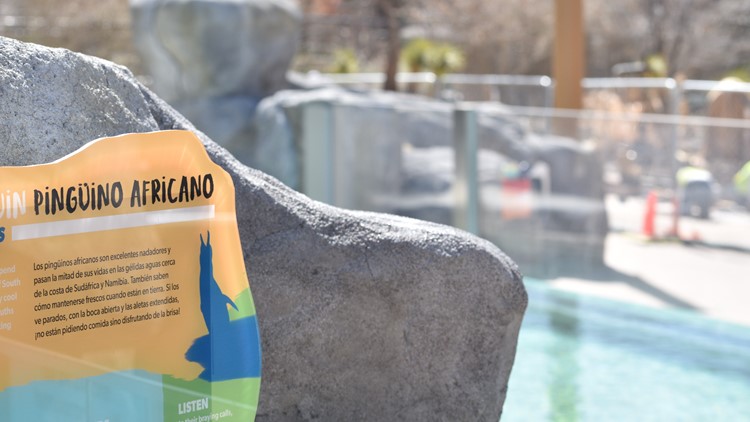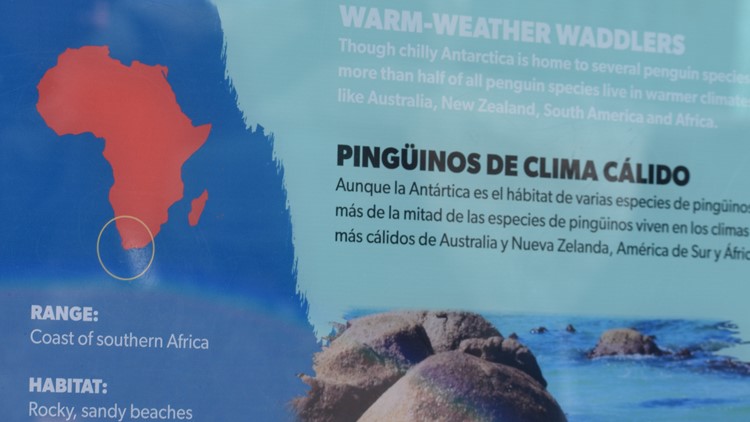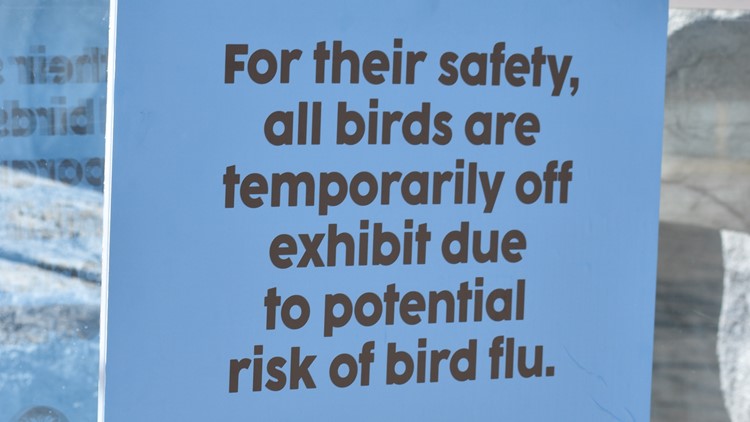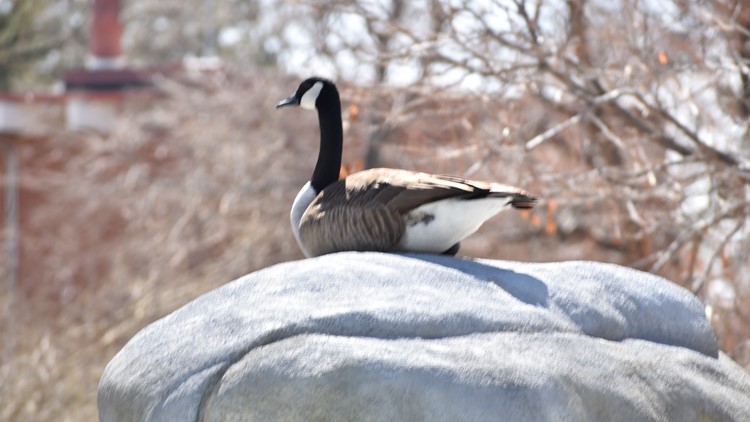DENVER — Where African penguins used to swim, a couple of wild geese were hanging out Thursday morning inside an otherwise empty exhibit at the Denver Zoo.
Nearly two weeks ago, zoo staff cleared out the exhibit and moved the penguins inside to protect them from an outbreak of Highly Pathogenic Avian Influenza (HPAI).
“[HPAI] can cause respiratory disease, so we can see coughing and sneezing," said Lara Croft, associate veterinarian at the Denver Zoo. "It can also affect the brain, so we can see neurologic disease like seizures."
HPAI can also be fatal for some species, Croft said. That's why the penguins and the other outdoor birds at the zoo are temporarily living inside.
On March 24, Colorado Parks and Wildlife and the USDA confirmed the first case of HPAI in Colorado. The virus was detected in three wild ducks in Denver County, according to the Colorado Department of Agriculture.
HPAI was detected in Morgan County last week, and five cases were confirmed in El Paso County this week.
“For our own birds’ protection, we decided to house them indoors to minimize any risk of exposure," Croft said.
Denver Zoo takes precautions with birds amid avian influenza outbreak
The virus is most common in waterfowl like ducks, geese and swans. Croft said it most often spreads through feces.
“Any sick birds, we’re swabbing and testing for bird flu," Croft said.
As of Thursday, the zoo said it hadn't had any positive test results.
"We're hoping it stays that way," Croft said.
The birds at the zoo that are typically outside this time of year will stay inside for at least 28 days, Croft said.
The zoo will also temporarily suspend programs and educational experiences involving birds.
“Hopefully we’ll get past this [HPAI] wave and have our penguins out for the public soon," Croft said.
The Colorado Department of Agriculture urges people who care for birds to report illnesses and unusual deaths.
SUGGESTED VIDEOS: Latest from 9NEWS

